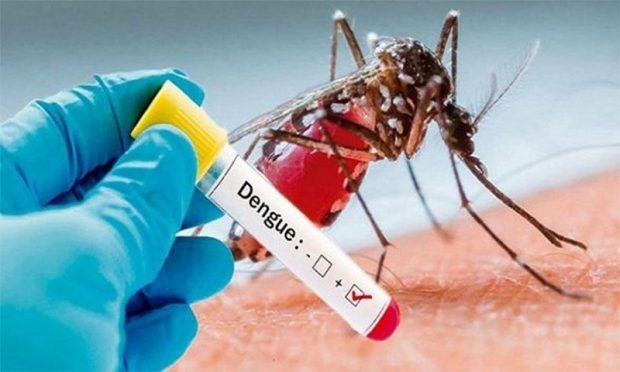
Dengue virus evolved ‘dramatically’ in India in last few decades: Study
PTI, May 2, 2023, 5:11 PM IST

Representative Image
New Delhi: The dengue virus evolved ”dramatically” over the last few decades in India, according to a study led by scientists at the Indian Institute of Science (IISc), which stresses the need for developing a vaccine against the strains found in the country.
Dengue cases have steadily increased in the last 50 years, predominantly in the South-East Asian counties. However, there are no approved vaccines against the mosquito-borne viral disease in India, although some vaccines have been developed in other countries.
”We were trying to understand how different the Indian variants are, and we found that they are very different from the original strains used to develop the vaccines,” said Rahul Roy, Associate Professor at the Department of Chemical Engineering at IISc Bengaluru.
The study, published in the journal PLOS Pathogens, examined all available (408) genetic sequences of Indian dengue strains from infected patients collected between the years 1956 and 2018 by others as well as the team themselves.
There are four broad categories—serotypes—of the dengue virus (Dengue 1, 2, 3 and 4).
Using computational analysis, the team examined how much each of these serotypes deviated from their ancestral sequence, from each other, and from other global sequences.
”We found that the sequences are changing in a very complex fashion,” said Roy, corresponding author of the study.
Until 2012, the dominant strains in India were Dengue 1 and 3, the researchers said.
However, in recent years, Dengue 2 has become more dominant across the country, while Dengue 4—once considered the least infectious—is now making a niche for itself in South India, they found.
The team investigated what factors decide which strain is the dominant one at any given time.
One possible factor could be Antibody Dependent Enhancement (ADE), said Suraj Jagtap, a PhD student at IISc and first author of the study.
ADE occurs when the antibodies generated during an immune response recognise and bind to a pathogen, but they are unable to prevent infection. Instead, these antibodies act as a “Trojan horse,” allowing the pathogen to get into cells and exacerbate the immune response.
Jagtap explained that sometimes, people might be infected first with one serotype and then develop a secondary infection with a different serotype, leading to more severe symptoms.
Scientists believe that if the second serotype is similar to the first, the antibodies in the host’s blood generated after the first infection bind to the new serotype and to immune cells called macrophages.
This proximity allows the newcomer to infect macrophages, making the infection more severe, they said.
”We knew that ADE enhances severity, (but) we wanted to know if that can also change the evolution of dengue virus,” Jagtap noted.
The researchers noted that at any given time, several strains of each serotype exist in the viral population.
The antibodies generated in the human body after a primary infection provide complete protection from all serotypes for about 2–3 years. Over time, the antibody levels begin to drop, and cross-serotype protection is lost, they said.
The researchers propose that if the body is infected around this time by a similar—not identical—viral strain, then ADE kicks in, giving a huge advantage to this new strain, causing it to become the dominant strain in the population.
Such an advantage lasts for a few more years, after which the antibody levels become too low to make a difference, they said.
”Nobody has shown such interdependence between the dengue virus and the immunity of the human population before,” Roy said.
This is probably why the recent Dengue 4 strains, which supplanted the Dengue 1 and 3 strains, were more similar to the latter than their own ancestral Dengue 4 strains, the researchers said.
The reported dengue cases in 2018 have increased more than 25-fold (three year average) since 2002 in India, according to the researchers.
All four geographical regions, namely–North, East, South and West-Central India, show periodic spikes in dengue cases as well as deaths over 2–4 years, they added.
Udayavani is now on Telegram. Click here to join our channel and stay updated with the latest news.
Top News

Related Articles More

Study shows how brain chemicals control eating, could help develop improved obesity drugs

‘Faster walkers’ had significantly lower risk of diabetes, hypertension: Study

World Meditation Day 2024: Celebrating inner peace and well-being

Virus causing gut infections could play role in development of Alzheimer’s: Study

Air pollution linked to more hospitalisations for all causes, mental illness too, study finds
MUST WATCH
Latest Additions

Woman dies by suicide after killing her two children in Kolar

Man hacked to death for opposing drug abuse in Kerala

India’s Martina Devi clinches silver at Asian Junior Weightlifting Championships

Three fake policemen arrested for extorting money through honey trap in Delhi

U’khand: 3 killed, 24 injured as bus falls into gorge in Bhimtal
Thanks for visiting Udayavani
You seem to have an Ad Blocker on.
To continue reading, please turn it off or whitelist Udayavani.





















